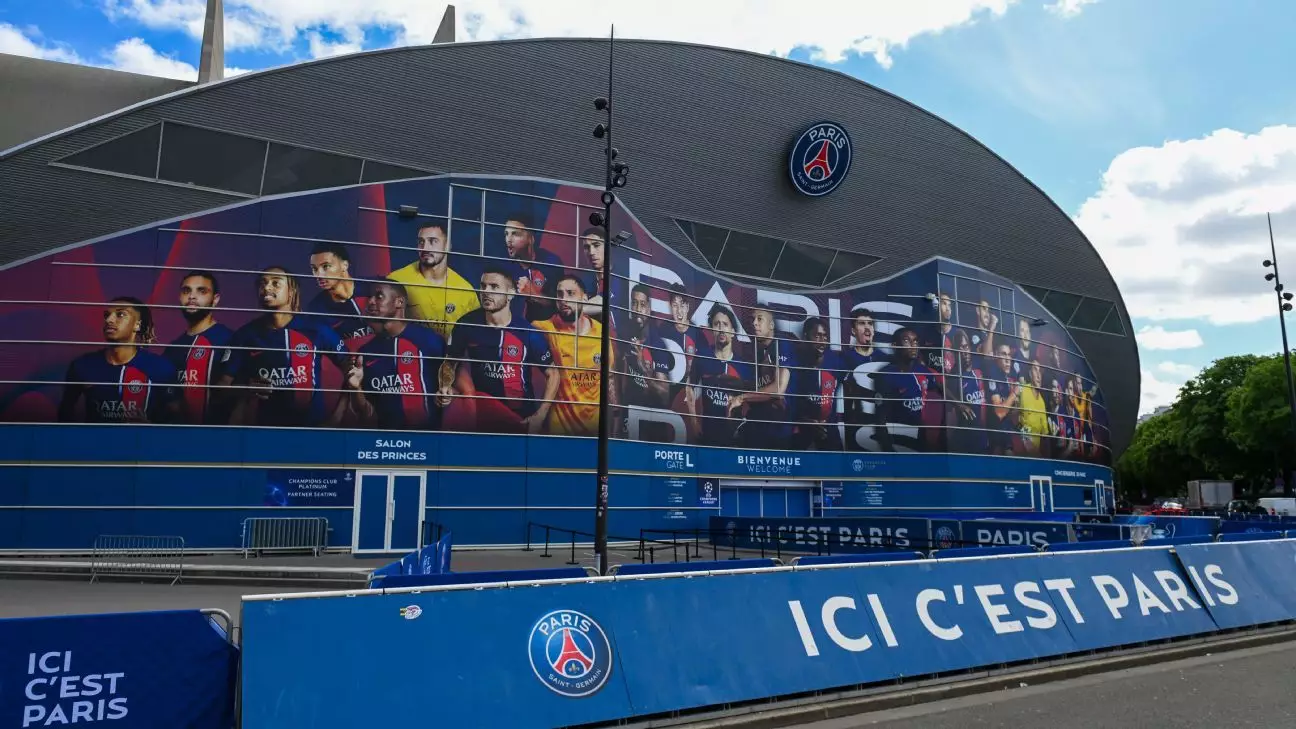Recent reports indicate a notable slowdown in Qatar’s investments in France, particularly reflecting the sentiments of key financial bodies such as the Qatar Investment Authority (QIA) and Qatar Sports Investments (QSI), the majority owner of Paris Saint-Germain (PSG). This shift comes as a surprise to many observers, especially considering that just over a decade ago, these Qatari ventures were the gold standard for foreign investment in French sports and businesses. The change stems not solely from internal investigations involving PSG President Nasser Al-Khelaifi but appears indicative of broader strategic recalibrations based on various societal and political pressures.
While some elements of the media have linked the cooling of investment to the ongoing corruption investigation involving Al-Khelaifi, insiders stress that this is not entirely accurate. The judicial scrutiny relates more to his associations with local businesses rather than his management of PSG. The preliminary charges against him focus on corruption charges, including allegations surrounding vote manipulation and abuse of power — factors more reflective of French politics than of Al-Khelaifi’s performance in the sports sphere.
Al-Khelaifi has notably denied any wrongdoing, again emphasizing that his name seems to attract undue attention in a judicial process that should primarily focus on substantive evidence. The perception that high-profile figures like him are embroiled in controversies could potentially deter future investors, influencing how Qatar evaluates its position in France.
Qatar’s dissatisfaction with its treatment in France stems from multiple sources—local media narratives that they view as biased, as well as frustrations with the French justice system. These complaints have prompted a reconsideration of their investments, leading to strategic sell-offs of properties and a reassessment of the once-thriving relationship with the French market. France was previously a key component of QIA’s investment strategy, but this realignment suggests that the Qatari officials are now exploring alternative markets more favorable to their business interests.
QIA has already begun divesting from parts of its substantial French portfolio, which includes high-value assets like luxury hotels and properties in prime locations across Paris. Their concerns, rooted in a perceived lack of appreciation for their contributions, make their the decision to pivot particularly reflective of an increasingly frustrated investor landscape.
When QSI acquired PSG in 2011, the anticipation was that the club would dominate both domestic and international arenas. While there have been successes—including ten Ligue 1 titles and a string of top-tier player acquisitions such as Neymar and Messi—the elusive UEFA Champions League title remains a glaring absence in their trophy case. This mounting pressure to deliver a Champions League victory, coupled with the complexities of operating amidst critical local sentiment, adds another layer to QSI’s investment calculations.
The recent involvement of American investment firm Arctos, alongside NBA star Kevin Durant, in acquiring a minority stake in PSG signifies an effort to expand beyond the Qatari influence while also attracting diverse input into their operational strategy. This move perhaps indicates a growing recognition within QSI that broadening their investor base may safeguard future operations against potential regulatory and reputational pitfalls.
Importantly, Qatari entities are now looking further than the borders of France. QSI has invested in ventures outside France, including an eye on Portuguese club Braga, while beIN Media Group has engaged in strategic discussions in Saudi Arabia. This diversification after years of concentrated efforts in France highlights a strategic response to changing global market dynamics and reflects a desire to hedge against the uncertainties currently present in the French market.
As Qatar pivots its investment strategy, the implications for sports and business in France may be profound. The cooling off could impact not only future investments from Qatar but also the overall atmosphere for foreign investment within the French economy. The unfolding narrative emphasizes the need for countries such as France to create a more inviting environment for international investors to retain the economic benefits that come with such partnerships.

Leave a Reply